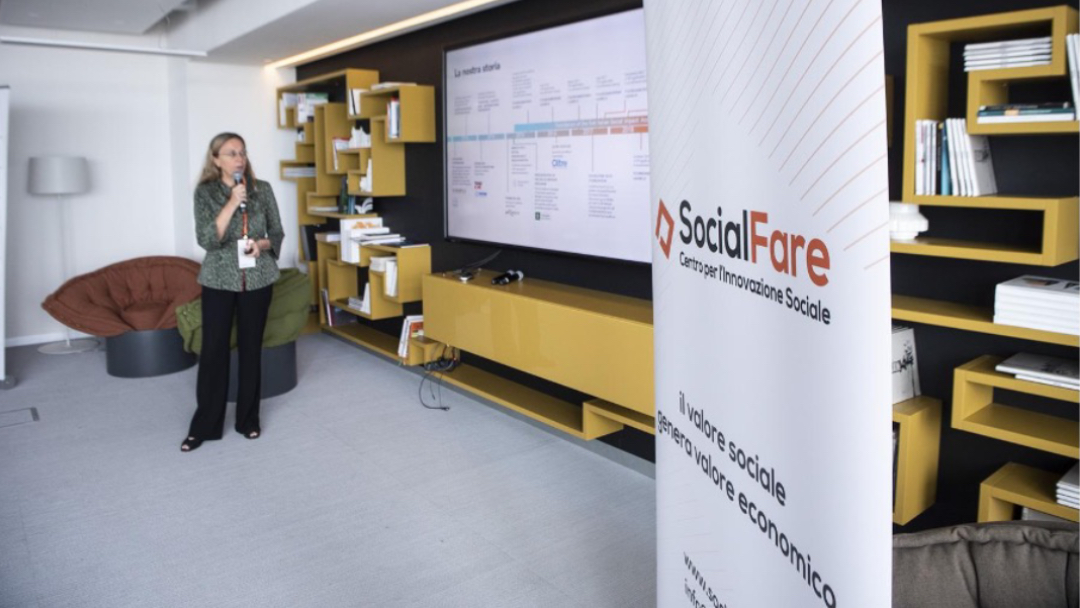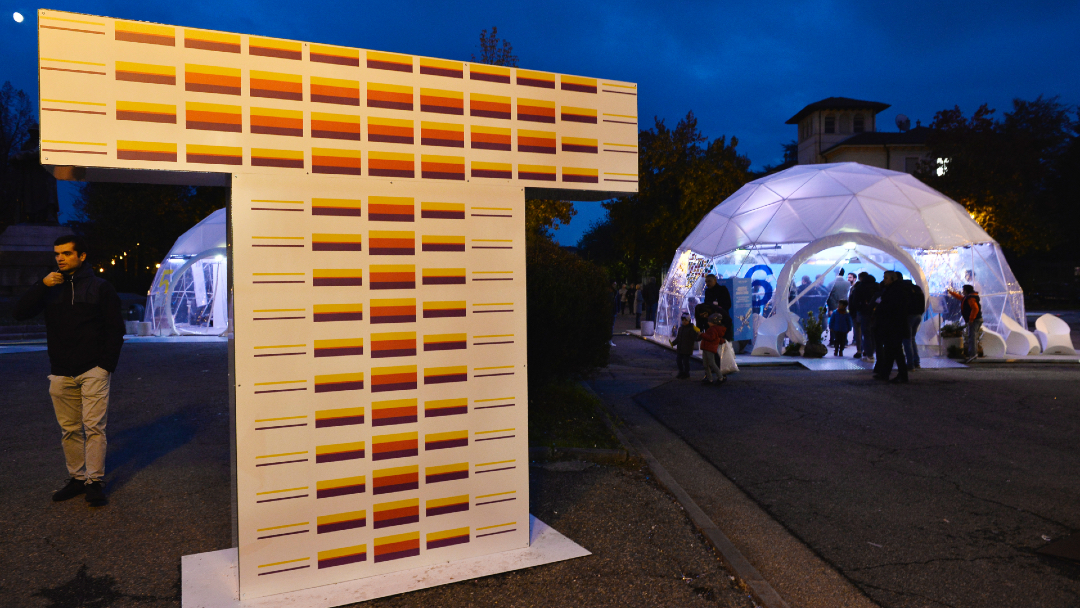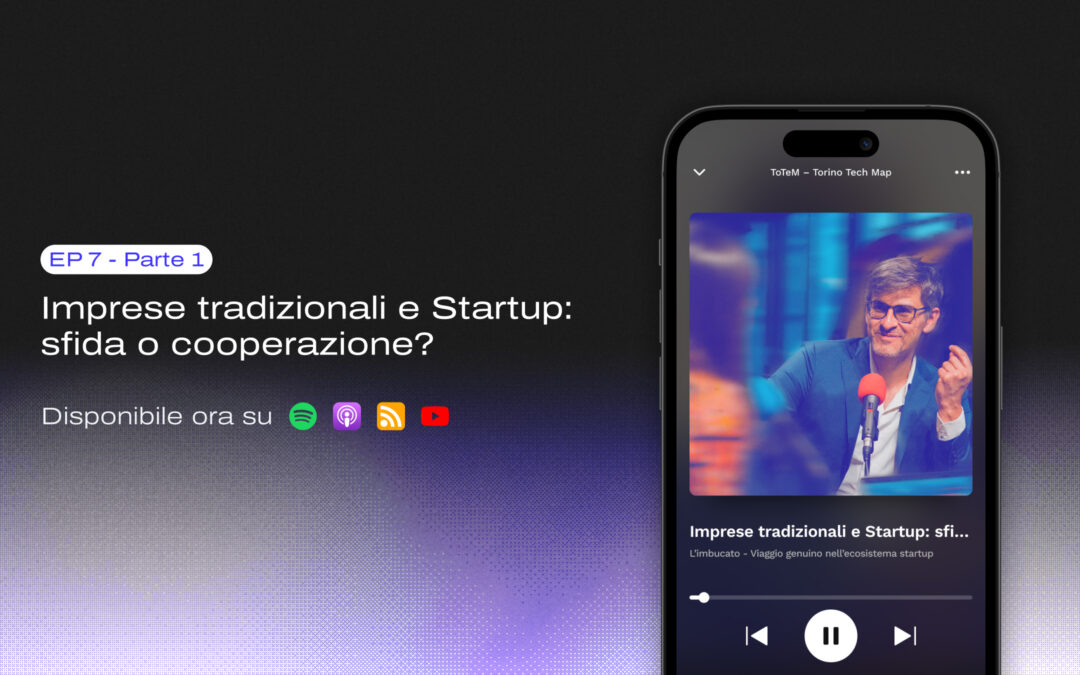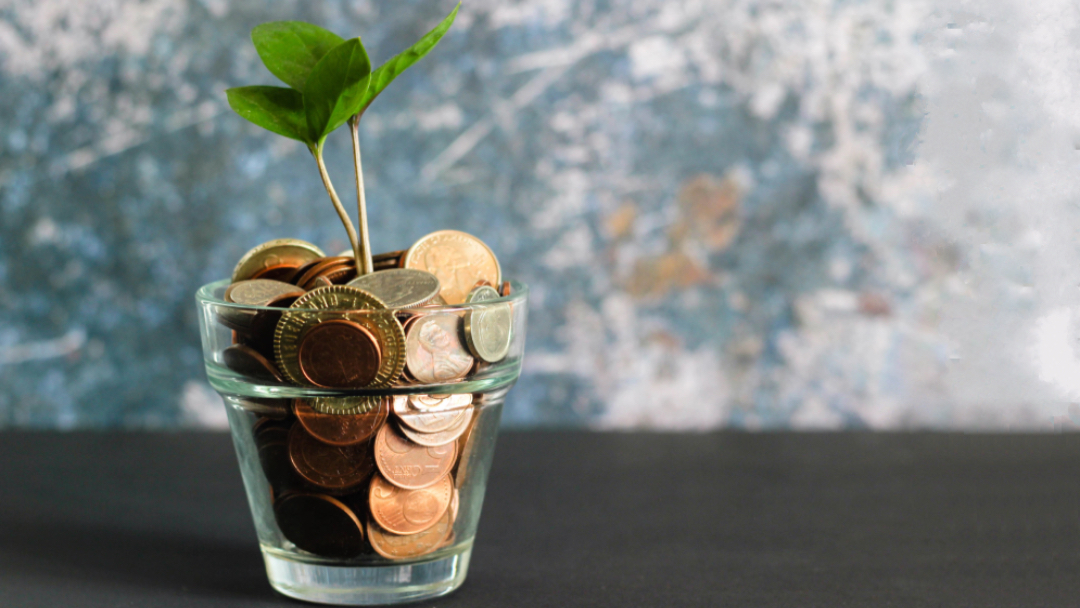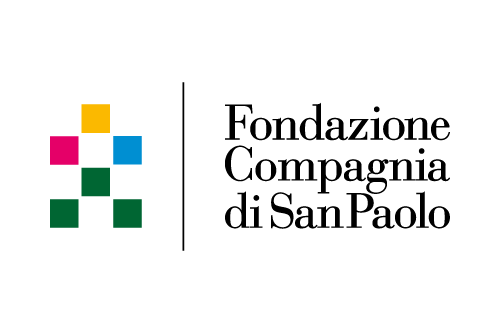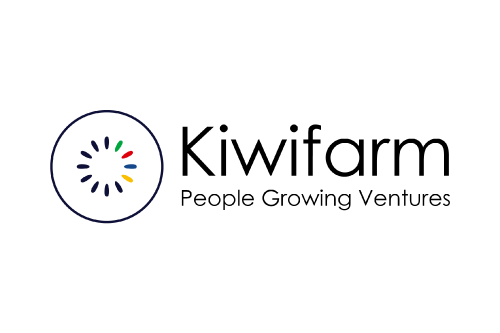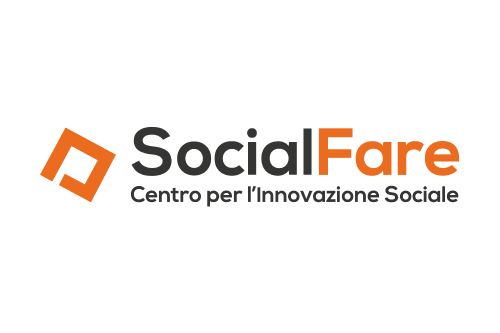
SocialFare | Center for Social Innovation was born in 2013 in Turin with the mission of developing innovative solutions to pressing contemporary social challenges, generating inclusion and a new economy starting from social value, relationships, territoriality and shared knowledge. It is a certified incubator of the MISE and since 2015 it launches Foundamenta, an open call aimed at social impact startups The SocialFare acceleration program uses a unique method that hybridizes the lean startup, design thinking and design systemic, offering selected startups 4 months of full-time acceleration and a seed fund up to €100K cash provided by SocialFare Seed, the dedicated investment vehicle.
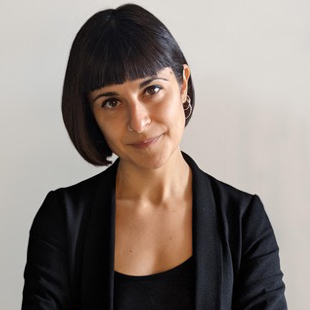
Martina Muggiri
Acceleration Program Coordinator
Martina Muggiri is a designer with more than 10 years of experience in the field of sustainable design with a systemic and human centered approach. In SocialFare | Centro per l'Innovazione Sociale she is coordinator of the acceleration program addressed to social impact startups. She has working experience in the field of marketing and brand management at the company Grom, an international experience of study and work as a researcher at the University of Minas Gerais in Brazil in the field of social design and since 2010 she is co-founder of the sustainable design collective Studio Superfluo.
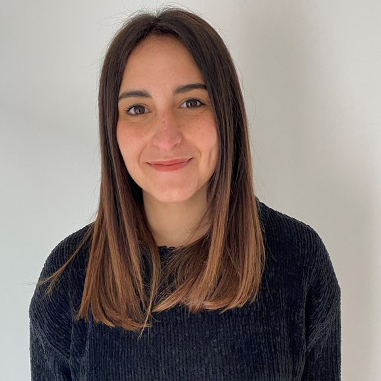
Eugenia Forte
Business Developer Acceleration Program
Eugenia Forte is a Mechatronic Engineer with a Masters in Business Administration from the Collège des Ingénieurs and international study experiences in the United States. After several years in a multinational where he took on the roles of specialist in Industry 4.0 and Digital Program Officer also dealing with the management of relations between startups and companies, he pursued his passion for the entrepreneurial world, taking on the role of mentor for startups. at different realities. Eugenia is Business Developer of the SocialFare acceleration program and moderator of Hacking Talent, an empowerment project to support young graduates looking for work.
Why is it so important to talk about social impact also in the world of innovation?
Martina: In this historical moment, we can't help but deal with social impact. Today, more than ever, we need innovative solutions that can respond to the problems of society, to improve people's living conditions, and that are also respectful in the use of environmental resources. We need true sustainable development in all its dimensions. In this sense it is essential to talk about social impact, sustainable development in innovation as well as in entrepreneurship and even in finance, which then supports the whole economic world. We need to talk about concrete impacts, real sustainability, we don't need solutions that are impact washing or greenwashing, but solutions that can actually have a transformative role. The vision is almost radical. I emphasize this component of transformation because it is fundamental to transform models of production, development, and growth, in order to meet the needs of people and protect the resources of the planet.
Why are startups able to play a leading role in terms of social impact? What is the role of startups and what can they do to carry out this mission?
Eugenia: Startups almost by definition are hungry to grow, to make space for themselves, to create something of value, to solve problems for their community that startuppers themselves feel. Startuppers have that desire to get involved that leads them to respond quickly to contemporary social challenges. Time is everything. If we want to respond to a real, concrete problem, the speed with which we respond to it is critical. So startups are born to have a fast response. And that's why, in my opinion, they are suited to responding with innovative solutions to social and environmental problems.
Martina: I agree. Today's generations have a certain sensitivity to issues that the older generations don't have. Agility and flexibility. If we think about the historical social innovation and social impact actors in Italy, it's rare to find an entrepreneurial startup approach. Excellent work has been done by the third sector, cooperatives and businesses, but the ambition to grow quickly, to want to develop innovative solutions quickly, is often missing. Startups have all those components that are complementary to the actors of "classic" social innovation. They are part of an ecosystem in which small and medium-sized companies, non-profit associations and businesses support each other and respond to different social challenges with different models. Certainly in this ecosystem startups must find their space, in order to affirm models that know how to combine economic growth and growth of social impact in a proportional and ambitious way.
To support social impact startups, with SocialFare you have recently launched Foundamenta, what is it and who is it for?
Martina: Foundamenta is our open call aimed at social impact startups that have already a validated prototype or that are already on the market. The call is open until June 6. You can send your application by filling out a form to which you must attach the pitch deck and the curricula of the team members. We evaluate startups throughout the year, so we are always available to get in touch with new realities, but for an organizational matter we ask that all applications are sent in this time window. At the end of the call we take a period of time to read all the applications and interview the most promising startups. Around mid-July, the startups that passed this selection phase will present themselves to us and the acceleration team at a selection day where we will select the startups that will start the acceleration program that will begin in late September. Along with the acceleration program we also have an investment vehicle called SocialFare Seed, to follow the startups from every point of view: we offer support regarding the technical/consulting side, training for the development of soft skills and also directly with equity investments. Our goal is to be able to really support those startups that have demonstrated their validity, with a working prototype and also with the first sales metrics, that want to grow and scale but are still too immature to present themselves to institutional investors. In this extremely delicate phase, which can determine the death or the success of a startup, there are often not enough players able to give a solid shape to the internal models and processes and to adequately support the search for economic resources to invest in order to achieve real growth. We think that's our job.
What kind of relationship do you establish with the realities that you decide to support?
Martina: It's a real marriage. Jokes aside, especially when we enter as investors in startups, the relationship becomes long-term and very intense until the moment of exit, but sometimes it lasts even after. During the accelerator program, we really get to step inside the companies. We are a very small team, we follow very few startups, but we work in detail, investing a lot of time in each reality because each time we find different people, markets, situations and peculiarities to explore. We feel almost part of the team and we really help them to grow and structure themselves. There is also a conflictual part, but it's a conflict aimed at the growth of the startup. Our main indicator of success coincides with how much startups are able to actually raise from investors. We don't talk about it a lot, but startuppers also need to refine the part about internal relationships in the team, presentations with other stakeholders, investors, management. We're talking about startups that often don't have money to pay their staff. We at SocialFare try to create the necessary conditions for startups to have the best engagement.
SocialFare chooses to support few projects and to create very close relationships. In the moment of evaluation, what triggers the spark and what makes you think “interesting, but we're not the right partner”?
Eugenia: We evaluate a lot of aspects and do a lot of interviews before selecting a startup. Initially, we do a screening of the applications, then we do the first interviews where we are presented with the idea. Of course, the essential aspect is the social impact, because that's our focus. So a startup that doesn't aim to make a social impact is not considered in our program. Other relevant points for us are certainly the evaluation of the team: we evaluate the background, the competences, the skills and above all the commitment. We start from the assumption that a startup is not a project that you can work on in your spare time, it requires great commitment from the team and a desire to get involved, to grow. As Martina said, we enter the startup both on an entrepreneurial and educational level, so there needs to be a desire to grow and learn on a personal as well as professional level. We also evaluate the maturity of the project, so not the business idea but whether there is already a prototype, or a product launched on the market. Of course, traction is also very important, i.e. the set of metrics that allow you to assess the presence of market demand and a real need for what you are proposing in terms of product or service. Startups that create a social impact can be declined on different technologies, in digital or with the creation of a physical product, but the important thing is that they realize a concrete value for society and communities.
How important is it for you to maintain a very close proximity to startups and be an active part of the innovation ecosystem both in Turin and internationally?
Eugenia: We think that there cannot be a social impact without a network. By network I mean the creation of relationships to generate new collaborations and to generate new synergies. We are keen to expand our network of partners and interlocutors. Our headquarters itself, Rinascimenti Sociali in via Maria Vittoria, is based precisely on this principle of network, of network. It is the reference point for Social Innovation in Italy, and hosts other realities besides Socialfare, and is precisely conceived as a place of convergence between different actors, therefore relations with startups, incubators, universities, associations. I also believe that ToTeM itself is a very useful guide to understand what is in the Turin landscape and if there was also a ToTeM Italia it would be very useful for anyone who wants to interact with this ecosystem.
Find out more about Foundamenta #12, the SocialFare call expiring on June 6th!
